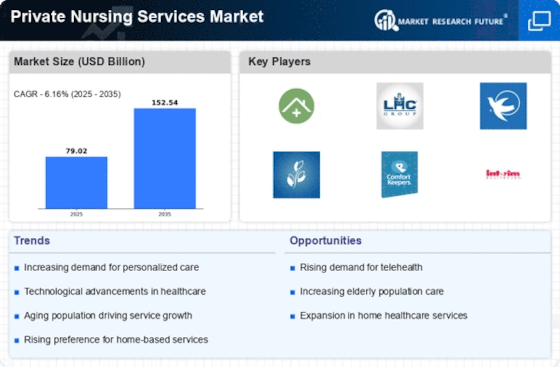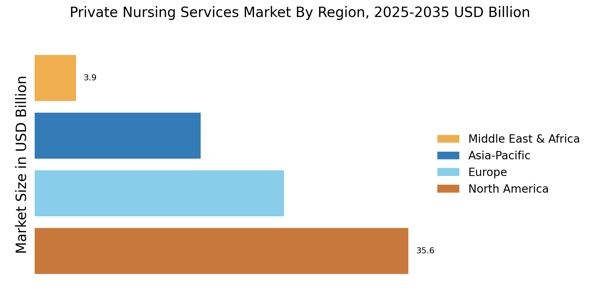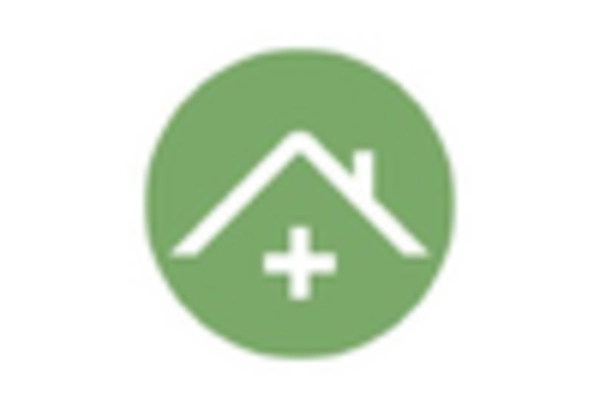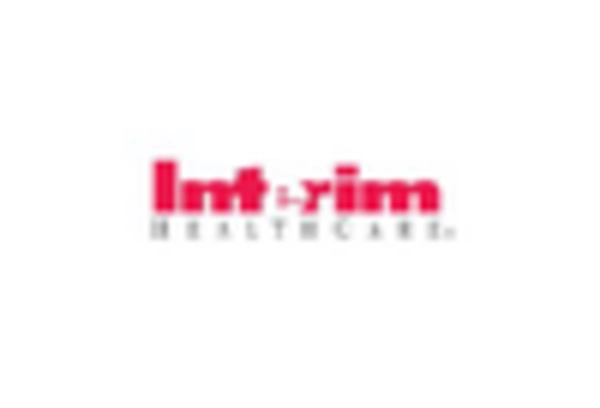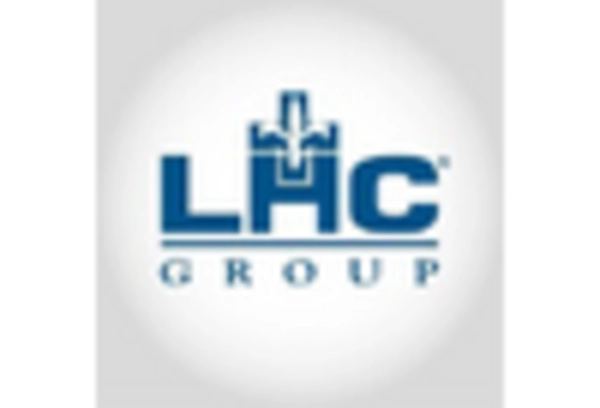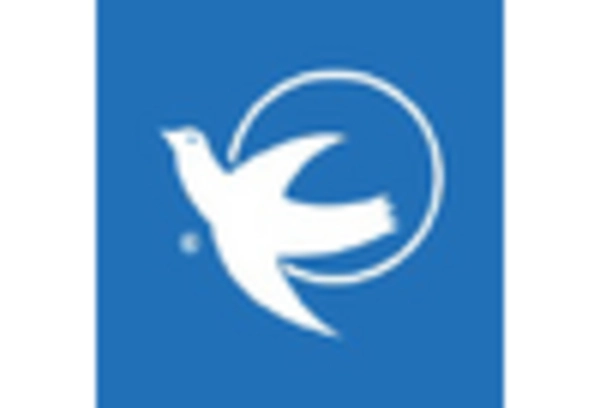North America : Leading Market for Care Services
North America is the largest market for private nursing services, accounting for approximately 45% of the global market share. The region's growth is driven by an aging population, increasing chronic diseases, and a rising preference for home healthcare services. Regulatory support, such as Medicare and Medicaid reimbursements, further catalyzes demand for these services, ensuring accessibility and affordability for patients. The United States is the primary contributor to this market, with key players like Amedisys, LHC Group, and Visiting Angels leading the competitive landscape. The presence of established companies and a growing number of startups enhances service offerings, catering to diverse patient needs. The focus on quality care and patient satisfaction remains paramount, driving innovation and service expansion across the region.
Europe : Emerging Market with Growth Potential
Europe is witnessing significant growth in the private nursing services market, holding approximately 30% of the global share. Factors such as an aging population, increased healthcare expenditure, and a shift towards home-based care are driving this expansion. Regulatory frameworks across various countries are evolving to support private nursing services, enhancing their integration into the healthcare system and improving service delivery. Leading countries in this region include Germany, France, and the UK, where the demand for personalized care is rising. The competitive landscape features both established providers and new entrants, fostering innovation and service diversification. Key players are focusing on enhancing their service offerings to meet the growing expectations of patients and families, ensuring a robust market presence.
Asia-Pacific : Rapidly Growing Healthcare Market
Asia-Pacific is rapidly emerging as a significant player in the private nursing services market, accounting for about 20% of the global share. The region's growth is fueled by a rising elderly population, increasing disposable incomes, and a growing awareness of healthcare services. Governments are also implementing policies to support home healthcare, which is expected to further boost market demand in the coming years. Countries like Japan, China, and Australia are leading the charge, with a mix of local and international players competing for market share. The competitive landscape is characterized by a focus on quality and personalized care, with companies investing in technology and training to enhance service delivery. The presence of key players is growing, ensuring a diverse range of services to meet the needs of patients across the region.
Middle East and Africa : Emerging Market with Unique Challenges
The Middle East and Africa region is gradually developing its private nursing services market, currently holding about 5% of the global share. The growth is driven by an increasing population, rising healthcare awareness, and a shift towards home-based care solutions. However, challenges such as regulatory hurdles and varying healthcare standards across countries can impact market growth. Governments are beginning to recognize the importance of private nursing services, leading to gradual policy changes. Countries like South Africa and the UAE are at the forefront of this market, with a growing number of private nursing service providers emerging. The competitive landscape is still developing, with both local and international players vying for market presence. The focus is on improving service quality and accessibility, which is essential for meeting the needs of a diverse patient population.


